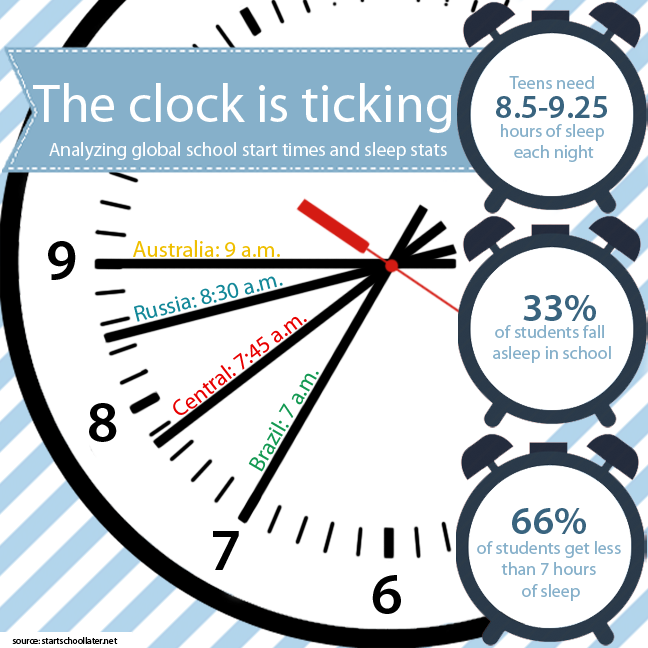District 203 considers later start times for school
October 20, 2016
Regarding the proposal for later start times, District 203 has asked members of the community to take the School Calendar and School Day Survey in order to gain feedback for future school schedules.
Superintendent Dan Bridges believes the timing of this consideration is right due to a variety of factors.
“Our committee of staff has been working on [the suggestion] for just about a year, so we identified it as something we needed to consider since a couple of years ago, when the Focus 2020 Blueprint was written,” Bridges said.
Among many factors that the committee must consider in creating a final decision, bus transportation before and after school remains crucial. For example, Bridges emphasizes that the staff is reflecting on whether feasible adjustments can be made in transportation to allow for a different start time.
Other issues the District is examining include extracurricular activities that involve personal and co-curricular commitments. Bridges states that this may cause schools to push back the end time or look at other options.
According to the survey, these other options include shortening the lunch period by 25 minutes and eliminating the open campus for seniors, shortening each class period by two to four minutes or shortening the class-to-class transition time by one minute.
The District also faces the difficulty of balancing the three different levels of elementary, middle, and high school.
Scientific research proving the benefits of increased hours of rest has also prompted the District to act for a change.
“There has been some research done by the American Academy of Pediatrics and the Centers of Disease Control that pushes for a later start time for adolescents,” Bridges said.
For example, a potential reduction of accidents by teenage drivers in the morning as well as increased focus of students during the school day have been speculated as positive impacts on the adolescent.
Despite the fact that students may possibly push back their sleep schedules in accordance to the hour of sleep in the morning, Bridges does not show a particular concern.
“There is some research that suggests that kids actually keep their schedule and benefit from the extra sleep, so that’s what I would expect to happen,” he said.
Teachers at Central have also held a committee in order to discuss the proposal and the potential reactions students may have.
Social Studies teacher Jane Thompson believes that the assurance of extra time in the morning must be utilized wisely by the students for an effective change.
“I teach the group of students who don’t get [the recommended 7 to 8 hours of sleep], but it’s not an equal trading of an hour in the morning for an hour at night,” Thompson said. “That simply flies in the face of what the American Academy of Pediatrics says is optimal for [students].”
Thompson adds that the influence of parents may also prove necessary.
“Here’s where it comes to mom and dad need to make sure that said student is actually going to sleep not going to their room still plugged into every electronic device because that’s what will happen,” Thompson said.
Still, the District’s official decision has numerous factors, financial as well as social, that have yet to be examined.
“We are going to look at the research reports, as well as the costs from an operational standpoint, do we have to purchase more buses for example,” Bridges said.
“We don’t have a final recommendation,” says Bridges. “We really want to hear from the community, but the committee of staff that has been looking at this suggested that perhaps our high schools could benefit from a start time as late as 8:30, so that’s a time were kinda looking at but no final decision.”
The District has signed a contract with K12 Insight who is compiling the results of the survey which closed on Oct. 18.








